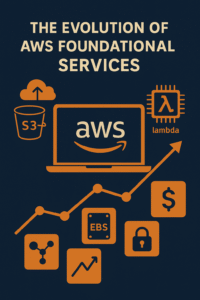In the fast-paced world of Information Technology (IT), technical certifications have long been a benchmark for skills and knowledge. However, the relevance of these certifications is increasingly being questioned. With the rapid evolution of technology, the traditional certification model is struggling to keep pace. In this post, we will delve into the reasons why technical certifications are becoming obsolete, highlighting key factors such as the dynamic nature of technology, the shift towards practical skills and experience, and the rise of alternative learning methods.
The Dynamic Nature of Technology
Rapid Technological Advancements
Technology is evolving at an unprecedented rate. New tools, frameworks, and methodologies emerge almost daily, making it challenging for any certification to remain current. Certifications that were relevant a few years ago may now be outdated, reflecting technologies and best practices that have been surpassed by newer, more efficient solutions.
For instance, consider the rise of cloud computing. In just a few years, it has dramatically changed the IT landscape. Certifications focusing on traditional on-premises infrastructure might not cover critical aspects of cloud services, leaving certified professionals with gaps in their knowledge.
Short Shelf Life of Certifications
The rapid obsolescence of technology means that certifications have a very short shelf life. A certification earned today might not hold the same value in two or three years. This constant need for recertification can be both time-consuming and costly, often leading to professionals questioning the return on investment of such credentials.
Shift Towards Practical Skills and Experience
Real-World Problem Solving
Employers are increasingly valuing practical skills and real-world experience over certifications. The ability to solve complex problems, adapt to new technologies, and think critically is often seen as more valuable than theoretical knowledge tested in a certification exam.
For example, a developer who has successfully built and deployed multiple applications using the latest technologies is likely to be more appealing to employers than one who simply holds a certification but lacks hands-on experience.
Portfolio Over Paper
In the tech industry, a strong portfolio often speaks louder than certifications. Demonstrating completed projects, contributions to open-source initiatives, and practical experience in real-world scenarios can significantly enhance a professional’s credibility. Platforms like GitHub, Stack Overflow, and personal blogs serve as modern-day resumes, showcasing actual work rather than just theoretical knowledge.
Rise of Alternative Learning Methods
Online Courses and Bootcamps
The availability of online courses and coding bootcamps has revolutionized the way IT professionals acquire new skills. These platforms offer up-to-date content, often developed and taught by industry experts who are currently active in the field. The flexibility of learning at one’s own pace and the focus on practical skills make these alternatives highly attractive.
Websites like Coursera, Udemy, and edX provide courses on the latest technologies, often including hands-on projects that mirror real-world tasks. Coding bootcamps, such as General Assembly and Flatiron School, offer intensive training programs that can equip individuals with the skills needed to start a career in tech within a matter of months.
Self-Learning and Open Resources
The internet is a treasure trove of free resources for self-learners. From comprehensive documentation and tutorials provided by tech giants like Google and Microsoft to community-driven platforms like Stack Overflow and GitHub, the opportunities for self-improvement are endless. This democratization of knowledge allows individuals to continuously update their skills without the need for formal certifications.
Industry Validation and Recognition
Employer-Endorsed Programs
Many companies are now developing their own training and certification programs tailored to their specific needs. These employer-endorsed programs ensure that employees are trained in the exact technologies and methodologies that the company uses, providing a more relevant and practical learning experience.
Peer Reviews and Recommendations
In the modern job market, recommendations and peer reviews can carry significant weight. Being recognized and endorsed by industry peers, whether through professional networks like LinkedIn or through contributions to open-source projects, can be more impactful than traditional certifications.
In Conclusion
While technical certifications once served as a key indicator of a professional’s skills and knowledge, their relevance is dwindling in the face of rapid technological change, the growing importance of practical experience, and the rise of alternative learning methods. IT professionals must adapt by continuously updating their skills through hands-on experience, leveraging modern learning platforms, and building a robust portfolio that demonstrates their capabilities. The future of IT lies not in the certificates on one’s wall, but in the projects completed, problems solved, and the ability to adapt and innovate in a constantly evolving landscape.



